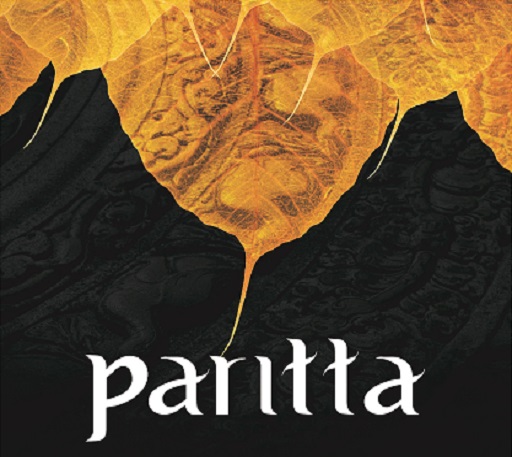No. 361.
VAṆṆĀROHA-JĀTAKA. 1
[191] “Is it thus, Sudātha,” etc.—This story the Master, while dwelling at Jetavana, told concerning the two chief disciples. On a certain occasion the two chief elders resolved during the rainy season to devote themselves to solitude. So they bade the Master farewell and leaving the company of the Brethren they went forth from Jetavana, carrying their bowl and robes with their own hands, and lived in a forest near a border village. And a certain man, who waited on the elders and lived upon their broken victuals, dwelt apart in the same place. On seeing how happily these elders lived together, he thought: “I wonder if it is possible to set them at variance.” So he drew nigh to Sāriputta and said, “Can it be, Reverend Sir, that there is some quarrel between you and the venerable chief elder Moggallāna?” “Why so, Sir?” he asked. “He ever, Holy Sir, speaks in your dispraise and says, “When I am gone, what is Sāriputta worth compared with me in caste, lineage, family and country, or in the power of attainments in the sacred volumes?” The elder smiled and said, “Be off, sirrah!” Another day he drew nigh to the chief elder Moggallāna, and said the same thing. He too smiled and said, “Be off, sirrah!” Moggallāna went to Sāriputta and asked, “Has this fellow, who lives on our leavings, said aught to you?” “Yes, friend, he has.” “And he said exactly the same thing to me. We must drive him away.” “Very well, friend, drive him away.” The elder said, “You are not to come here,” and snapping his fingers at him, he drove him away. The two elders lived happily together, and returning to the Master, made obeisance to him and sat down. The Master spoke kindly to them and asked if they had kept their Retreat pleasantly. They said, “A certain beggar wished to set us at variance, but failing in the attempt he ran away.” The Master said, “Verily, Sāriputta, not now only, but formerly also, he thought to set you at variance, but failing in the attempt he ran away.” And hereupon at his request he related a story of bygone days.
Once upon a time when Brahmadatta was reigning in Benares, the Bodhisatta was a tree-god in a forest. [192] At that time a lion and a tiger lived in a mountain-cave in that forest. A jackal was in attendance on them, and living on their broken meats began to wax gross of body. And one day he was struck with the thought, “I have never yet eaten the flesh of a lion or a tiger. I must set these two animals by the ears, and when in consequence of their quarrel they have come by their death, I will eat their flesh.” So he drew nigh to the lion and said, “Is there any quarrel, Sir, between you and the tiger?” “Why so, Sir?” “Your Reverence,” he said, “he ever speaks in your dispraise and says, “When I
p. 127
am gone, this lion will never attain to the sixteenth part of my personal beauty, nor of my stature and girth, nor of my natural strength and power.” Then the lion said to him, “Off with you. He will never speak thus of me.” Then the jackal drew nigh to the tiger also, and spoke after the same manner. On hearing him, the tiger hastened to the lion, and asked, “Friend, is it true, that you said so and so of me?” And he spoke the first stanza:—
Is it thus 1Sudāṭha speaks of me?
“In grace of form and pedigree,
In might and prowess in the field,
1Subāhu still to me must yield.”
On hearing this Sudāṭha repeated the four remaining stanzas:—
Is it thus Subāhu speaks of me?
“In grace of form and pedigree,
In might and prowess in the field, Sudāṭha still to me must yield.”
If such injurious words are thine,
No more shalt thou be friend of mine.
The man that lends a ready ear
To any gossip he may hear,
Soon picks a quarrel with a friend,
And love in bitter hate will end.
No friend suspects without a cause,
Or carefully looks out for flaws;
[193] But on his friend in trust will rest
As child upon its mother’s breast,
And ne’er will by a stranger’s word
Be parted from his bosom’s lord.
When the qualities of a friend had been thus set forth in these four stanzas, the tiger said, “The fault is mine,” and begged pardon of the lion. And they continued to live happily together in the same place. But the jackal departed and fled elsewhere.
The Master, having brought his lesson to an end, identified the Birth:”At that time the jackal was the beggar who lived on broken meats, the lion was Sāriputta, the tiger Moggallāna, and the deity that dwelt in that forest and saw the whole thing with his own eyes was I myself.”
Footnotes
126:1 Compare no. 349 supra, Tibetan Tales, XXXIII: The Jackal as Calumniator, and Benfey’s Introduction to the Panchatantra.
127:1 Sudāṭha (strong-tooth) is the lion, Subāhu (strong-arm) the tiger.

![[PDF] The book of the Discipline – Vinayapiṭaka – The full 6 Volumes](https://en.namo84000.org/wp-content/uploads/2023/12/The-Book-of-the-Discipline-Vinaya-Pitaka.jpg)


![[En] Guide to Tipitaka](https://en.namo84000.org/wp-content/uploads/2021/10/Kinh-Phat-Quan-trong-2.jpg)